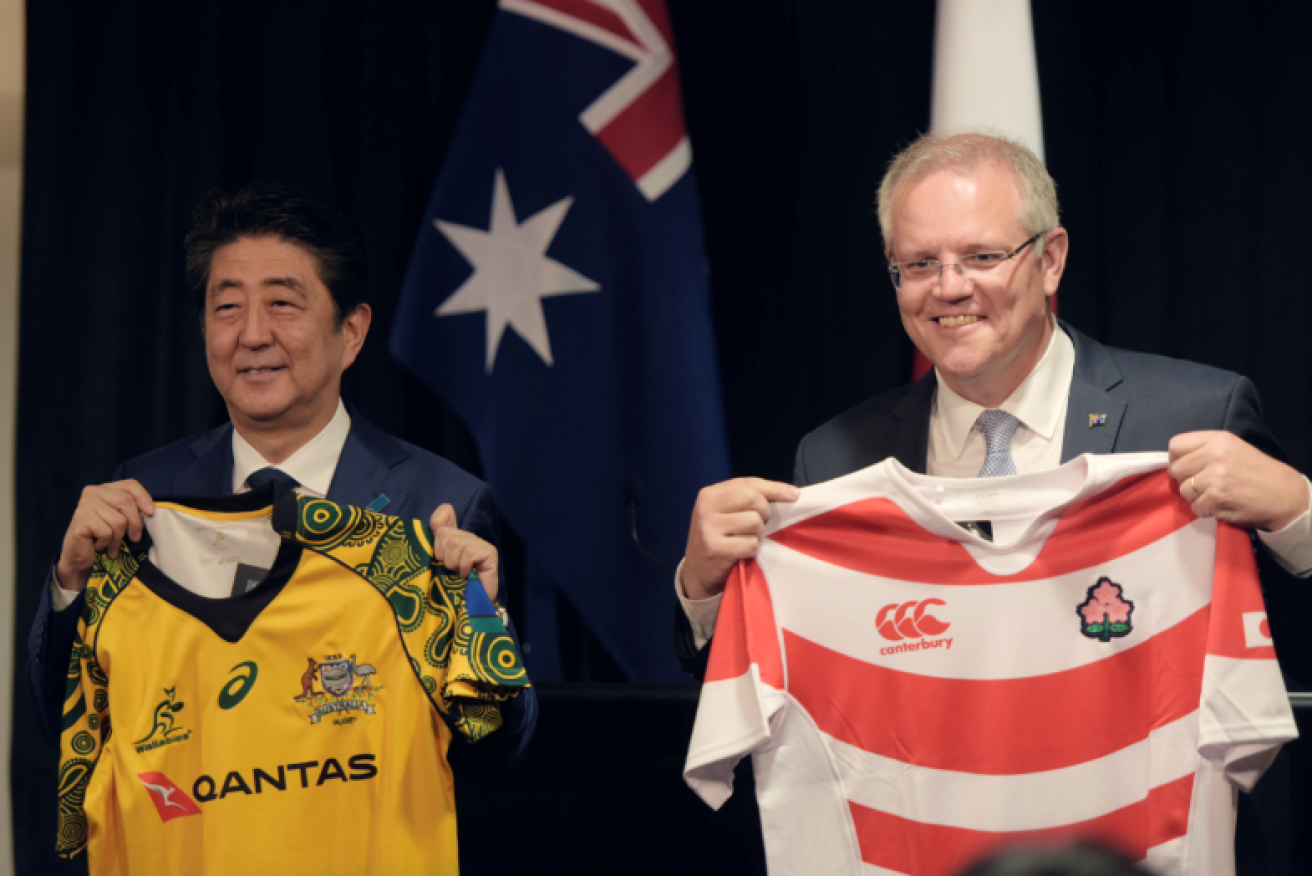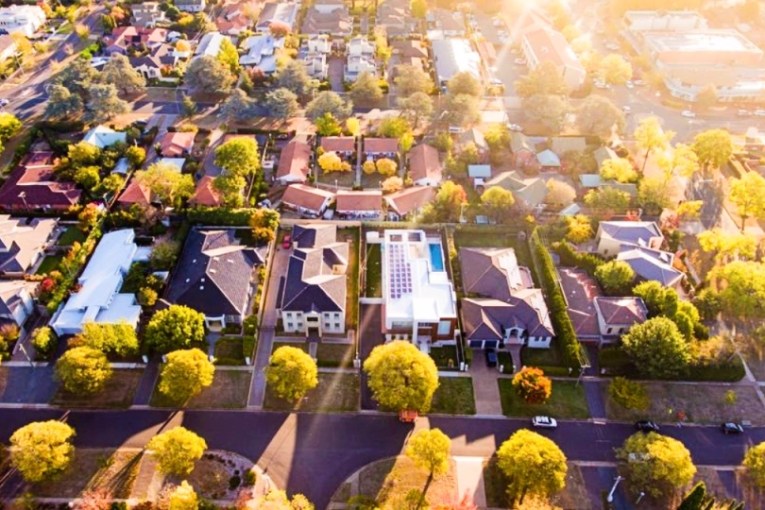Japanese PM Shinzo Abe binds wounds and makes history with Darwin visit


Japanese leader Shinzo Abe and Australia's Scott Morrison beg to differ about their national rugby squads, but on trade they're on the same team. Photo: AAP
Almost 77 years ago, Japanese warplanes staged the first in a series of surprise raids on Darwin that claimed more than 200 lives, littered the harbour with sunken ships and left the tropical outpost a smoking, shattered ruin.
On Friday, Japan’s Prime Minister Shinzo Abe formally put those memories behind the two nations when he laid a wreath at a memorial for those who perished.
PM Scott Morrison laid the wreath with Mr Abe, who is the first Japanese prime minister to visit Darwin, which was bombed in February 1942 during World War II.
The Japanese leader’s visit recognised “the importance of the reconciliation that followed between our countries”, Mr Morrison said.
“Prime Minister Abe’s visit is deeply symbolic and significant and it will build on our two countries’ strong and enduring friendship as well as our economic, security, community and historical ties,” he said.
Mr Abe will also pay his respects on Saturday at a memorial dedicated to the the 80 crewmen of Japanese mine-laying submarine I-124, sunk by the minesweeper HMAS Deloraine days before the first air raid while on a reconnaissance mission to survey and test Darwin’s defences.

Japanese submarine I-124 went to the bottom with all hands. Photo: Australian Naval Institute
Mr Abe and Mr Morrison walked together in Darwin’s Bicentenntial Park to the Cenotaph for the solemn military ceremony, including the playing of the Last Post.
At a later press conference, Mr Abe said it was a moving and emotional experience to offer his condolences to the war dead of his nation’s former enemy, adding that the experience strengthened his “vow to work for peace”.
Australian and Japanese government ministers and other dignitaries attended, including military veterans and curious locals.
The bombing of Darwin on February 19, 1942, was the largest attack mounted by a foreign power on mainland Australia and resulted in the death of some 240 people.

Diggers gingerly lift an unexploded bomb from its crater in the days after the raid. Photo: ABC
Over the months that followed, Darwin was hit again and again – although no one raid matched the ferocity or destruction of that first onslaught.
Mr Abe and Mr Morrison will discuss trade and security issues before heading to Port Moresby for the Asia-Pacific Economic Cooperation forum.
The Japanese leader’s visit also included Friday’s official opening of the recently completed $A55 billion LNG project, operated by Inpex, which will provide 10 per cent of Japan’s natural gas.
Darwin is a key part of Japan’s energy security through the recently completed $US40 billion ($A55 billion) LNG project.
The Ichthys LNG venture is the biggest foreign investment made by Japan as it has moved away from nuclear power since the Fukushima disaster.
The first gas shipment left Darwin for Japan in October.
Inpex president Takayuki Ueda, who on Thursday announced a $24 million package over 40 years including benefits for indigenous education and the elderly, said the support of locals made Darwin a friendly location to ship gas in a stable, democratic country.
-with AAP







